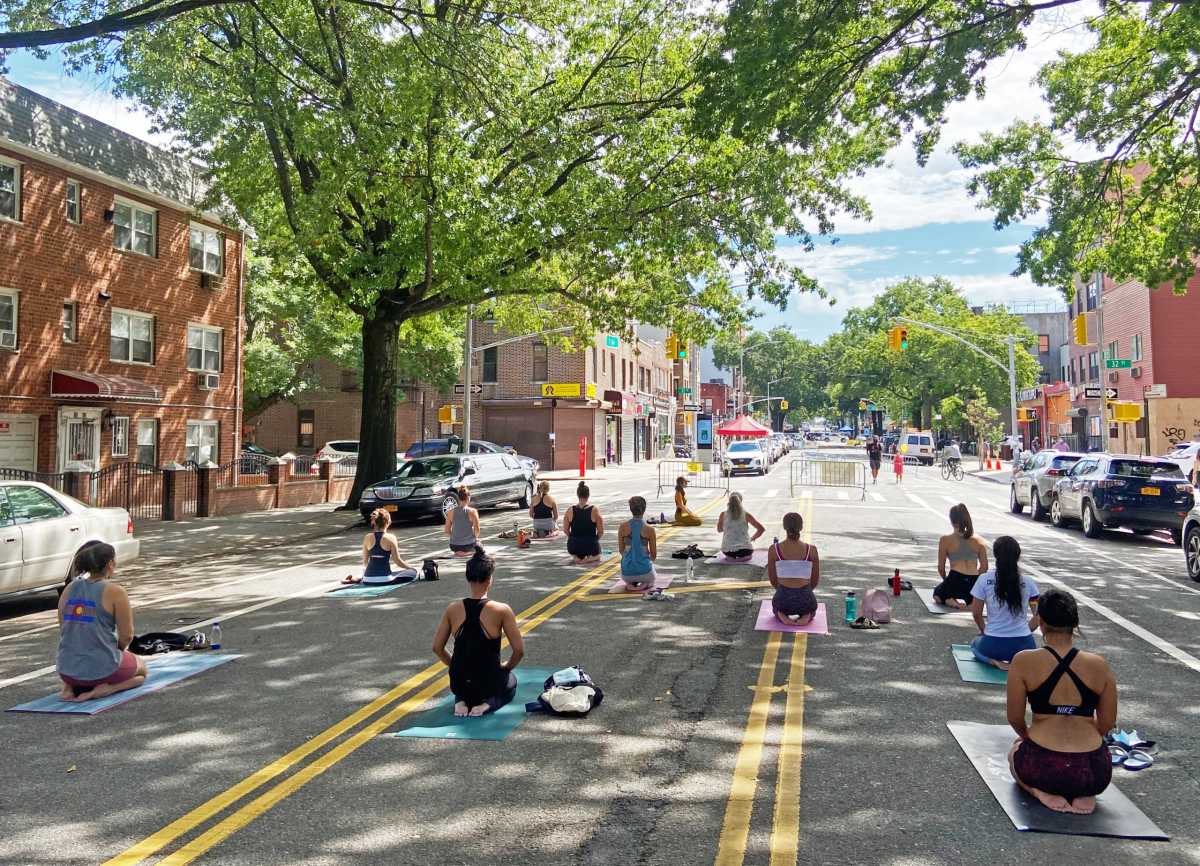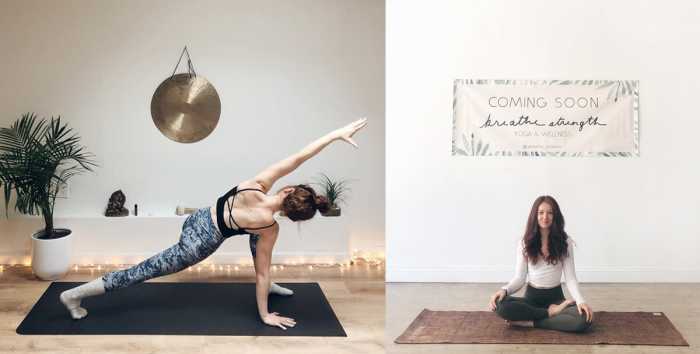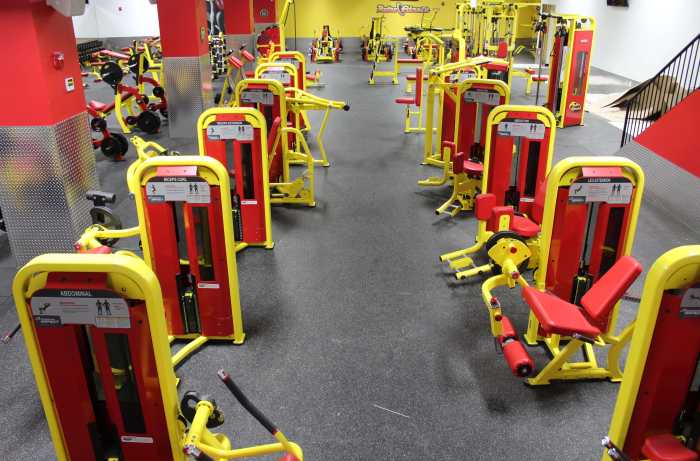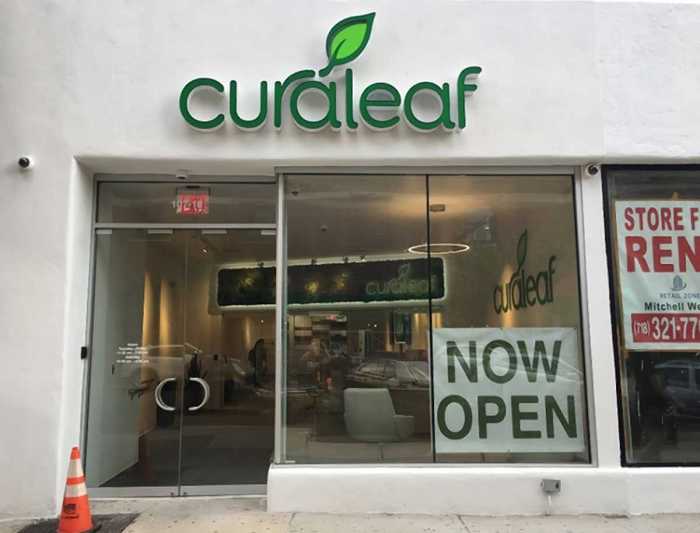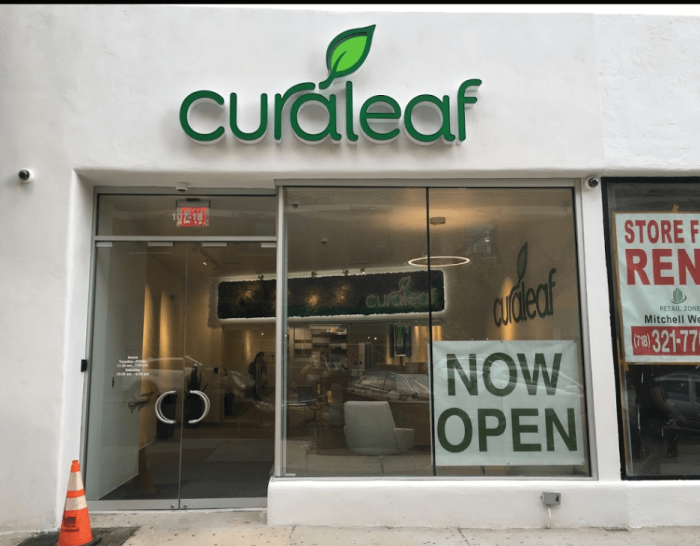While gyms in New York City were allowed to reopen earlier this month, other fitness businesses were left in limbo.
Nick Velkov, yoga instructor and owner of Yoga Agora, doesn’t understand the logic of keeping small fitness businesses like his from reopening. The small business owner mainly believes the city needs to establish a more holistic approach to address public health as it continues phased reopening.
“I’m really concerned about the long-term health effects that we’re going to experience from all the isolation, [and] about the long-term effects that children are going to encounter from being away from their friends and not being in school,” Velkov told QNS. “I think if we’re really looking ahead of the curve, in terms of public health, our city leaders are failing us with draconian isolation.”
For the most part, fitness studios have been operating virtually and outdoors once Phase 4 went into effect.
Since Velkov can’t offer classes in his studio, located at 33-02 Broadway in Astoria, he and his team use the 31st Avenue Open Street for some of their classes.
They also have yoga classes at Astoria Park, and offer instructions via Zoom.
“We get a good crew,” he said. “People are definitely into it. For a lot of people, yoga is their health care.”
But Velkov still has bills to pay, and the revenue they’re taking in from classes isn’t what it used to be — for their 31st Avenue classes, for instance, they can only ask for donations being that the classes are held on a public street.
He was able to secure a PPP loan which helped them meet all their expenses until June, but were back to square one once it was all gone. Velkov and his team of about 10 instructors have also taken significant pay cuts, which he said at least keeps everyone on their payroll.
“We’re a very socialist operation; we share resources. To be honest, I think the only reason we’re surviving right now is because we operate under a socialist framework,” Velkov said. “I think if we [had] a very capitalistic framework we’d be closed by now.”
Velkov is hoping to have more loan options from the Small Business Administration and more COVID-19 aid from the federal government.
Recently, one of the banks he’s worked with for years offered him a loan of about $30,000, but the interest rate was as high as 12 percent.
“It was way too steep for me to feel comfortable taking,” he said. “It looks like banks have small businesses in a vice grip. The small business basically has to choose between shutting down the business completely or keep the business open and maintaining a debt to banks for perhaps decades.”
However, it’s the bureaucracy that’s been the most frustrating for Velkov. He said he received mixed communication from different elected officials and city agencies, only to be told that fitness classes were not allowed to return with gyms.
“We now have a whole bunch of people who are completely unprepared to handle a dangerous virus, but if those same people had done more to build their immunity — to reduce their stress levels, to learn how to responsibly engage socially with their neighbors — you could have handled this without 200,000 deaths,” Velkov said. “But no, too many people did not prepare. Our government leaders did not prepare.”
The state guidance on reopening gyms gave localities the ability to opt out of reopening indoor fitness classes. The city sees indoor fitness classes as a high-risk activity.
A spokesperson for Mayor Bill de Blasio told QNS there is no specific timeline for their return as of yet, but the administration is keeping a close eye on the health situation in the city.
The city’s main focus has been to reopen schools to in-person learning this month, which has come with delays and concerns for the safety of students and school staff.
But Velkov can’t help but think of the alcohol stores that remained open throughout the height of the pandemic.
“We have a city where alcohol is classified as it all comes designated as an essential service, even though we know, scientifically, alcohol will mess up our immune system and make us more susceptible to illness,” Velkov said. “But exercise, meditation centers, breath work centers — those are considered unsafe, even though we know that meditation, moderate exercise, proper breathing, boosts immunity. So it seems to me like a more capitalist-minded approach to health rather than a more wellness-minded approach to health.”
The de Blasio administration believes it’s taking the right approach for a careful reopening so as to prevent a resurgence of the virus. A spokesperson for the mayor said keeping liquor stores open was part of their harm reduction approach.
This week, the city reported several clusters of positive COVID-19 infection rates in Queens and Brooklyn ZIP codes, after weeks of NYC’s infection rates at 1 percent.
Velkov assures his studio has appropriate ventilation, thanks in part to wide windows — but he says the benefits of yoga and group instructions outweigh the worries.
“The movement of yoga is preventative health care. You get the blood flow moving. [It] stimulates your immune system. It gets oxygen to your brain into your tissues and your organs,” Velkov said. “When people are breathing through their nose, as they’re instructed to do in yoga, they can take full and slow breaths, [and] it’s a great immunity boost. And then the meditation aspect of yoga, the mindfulness and the connecting your brain to your body, is a great stress reduction technique.”
Like other businesses that aren’t allowed to reopen just yet, Velkov wants a timeline for when indoor fitness studios will be able to open their doors.
“Yoga in general is basically health insurance for a lot of people, so they’ll practice anywhere,” he said. “But one of the very important parts of it is the social aspect — it’s a chance for neighbors to meet and talk to [each other]. And I think there’s no more important time for community building than now, in the middle of a pandemic.”

